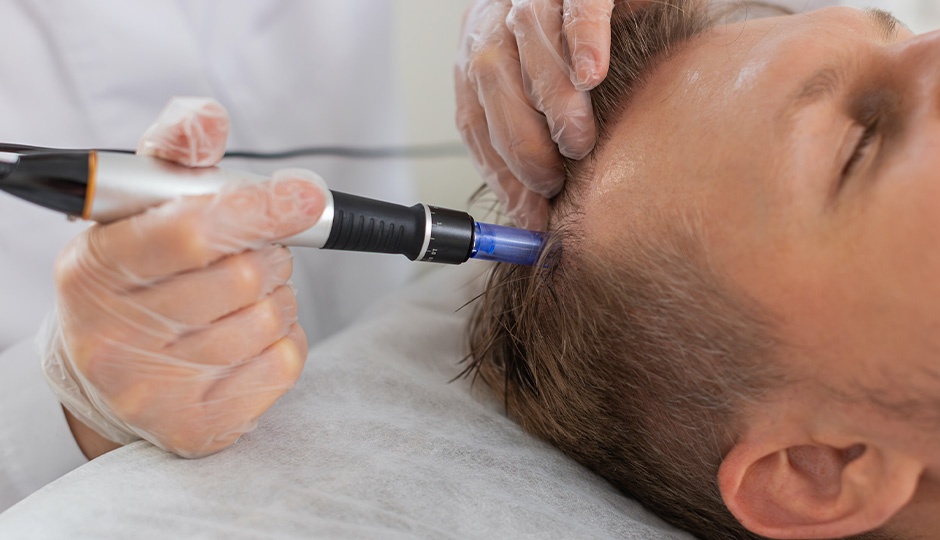No doubt you’ve heard of PCOS. We’re going to cover this health condition in this article, specifically looking at how it is linked to hair loss. If you think you might have PCOS, make sure you see your healthcare provider.
What Is PCOS?
It stands for polycystic ovary syndrome. It occurs when the ovaries produce too many hormones known as androgens. Males usually have more androgens than females, hence why females who produce more of them experience hair growth in places more commonly seen in men. Polycystic refers to the multiple cysts which can develop on the ovaries.
Does PCOS Cause Hair Loss?
PCOS can cause both unwanted hair growth – called hirsutism – and hair loss – known as alopecia. The unwanted hair growth tends to occur on the face and on the body. This can be dealt with using traditional removal techniques.
Hair loss tends to occur on the head, most noticeably on top of the head. Your parting may become more obvious if this occurs. However, it is far more likely that someone with PCOS will experience hair growth rather than hair loss. It all depends on the levels of androgens in the body. The higher those levels are, the more likely it is someone will experience hair loss.
PCOS may cause what’s known as female pattern hair loss or androgenetic alopecia. This causes the appearance of thinning hair as described above. You may also notice you’re more prone to thinner hairs, which can multiply to give the effect of bald patches.
You are likely to notice other symptoms of PCOS long before experiencing any hair loss. As noted here, excessive hair growth appears far earlier along with a range of other symptoms.
Can You Reverse PCOS Hair Loss?
The sooner you receive a diagnosis of PCOS, the sooner you can be treated to combat the condition. Treatment will vary depending on your symptoms and whether you are trying to get pregnant. Anti-androgens may be prescribed to combat the level of androgens your body produces. This can in turn tackle any hair loss you might be experiencing.
As you can see, there are different treatments available, broadly split into two categories – for those who are not pregnant or aiming to become so, and for those who are.
You should also consider taking other steps to combat hair loss and focus on improving your hair. For example, a good balanced diet is essential, as it will help to ensure you get a balanced mix of vitamins and minerals each day. Biotin is an essential vitamin that supports healthy hair. If you take a daily supplement alongside other techniques to help improve the condition of your hair, it can play a vital role.
Focus on Taking Good Care of Your Hair if You Have PCOS
The first line of defense is always to see a healthcare provider to discuss the best treatment for polycystic ovary syndrome. However, as we’ve seen, there are other things you can do as well.
For example, whenever you wash your hair, take care not to brush it while wet. Avoid any heat treatments or styling methods too if you can, as these can be hard on your hair. If you’re prone to shedding hair anyway, you need to take the best care of what you have. PCOS can lead to a greater chance of hair breakage as well, so try to avoid repeatedly tying your hair back or choosing a similar tighter hairstyle when you can.
Your hair professional can offer tips and suggestions for hairstyles that can help make the most of your hair if you are suffering from alopecia caused by PCOS. It is possible to regrow your hair, but it can take many months to notice a difference. Visiting a center that specializes in hair loss prevention treatments is beneficial to get you started on a regimen to retain and to support the health of your hair.
Remember that even if you’ve seen your healthcare practitioner about PCOS, don’t hesitate to ask for further advice if you are struggling with hair loss. There are many hair loss solutions that are suitable for those with PCOS, but proper medical advice will ensure you receive the best treatment for your needs.
If you have PCOS and experiencing hair loss, contact the professionals at Unique Hair Concepts for a private, complimentary, in-person consultation.






